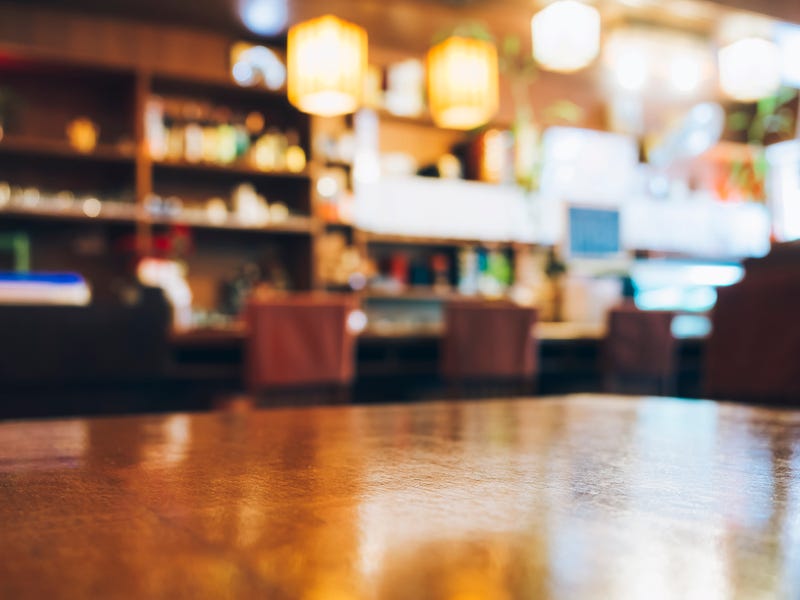
(WWJ) The restrictions associated with the coronavirus pandemic have devastated Michigan’s bar and restaurant industry.
More than half of our favorite eateries and drinking holes might not exist next year, according to a recent survey.
Speaking live on WWJ, Executive Director of the Michigan Licensed Beverage Association Scott Ellis said they polled their more than 2,000 members about the toll of the restrictions.
About 50% of the bars and restaurants polled said, if a ban on indoor dining lasts more than a couple of months, they will “shut down forever.”
Multiple bars and restaurants are defying the Michigan Department of Health and Human Services’ (MDHHS) Epidemic Order that required them to shutter for three weeks, according to Ellis.
“These bars and restaurants are doing this out of absolute desperation. The bar and restaurant owners are very good business owners. They want to obey the law,” Ellis told WWJ’s Mike Campbell. “But the calls that I get… these people are desperate, they’re sad, they’re teary. They’re losing everything.”
The Michigan Liquor Commission is issuing emergency suspensions of the liquor licenses.
Three restaurants and bars had hearings on Friday, according to Ellis.
“The license itself is basically property. You have a right to due process through the administrative system and up the court system," he told WWJ.
About 8 businesses have been cited for violations under the Michigan Liquor Commission, Ellis said. However, Michigan Occupational Safety and Health Administration (MIOSHA) and local health departments can also crack down on restaurants and bars disobeying the law.
“They can get hit from many, many angles. That’s the scary part,” Ellis said.
Governor Whitmer said in a press conference Thursday that an extension of the ban on indoor dining is “sadly possible.” The ‘three-week pause,’ slated to expire on Tuesday, also shuttered entertainment venues; and cancelled in-person classes for high schools and colleges, as well as youth sports.
This might be the final nail in the coffin for many bars and restaurants families have spent a lifetime, even generations, building. The industry will not take it lying down, Ellis said.
“We are going to be in talks over the weekend, and we are going to be pushing to open back up. If the numbers don’t change, I think we can prove bars and restaurants aren’t the problem,” he told WWJ. “If (the cases) continue to climb, how can we blame bars and restaurants if they have been closed for two weeks?”
The MDHHS reports a total of 41 total outbreaks tied to bars or restaurants since the start of the pandemic. Nearly three quarters of those outbreaks, or 28, involved multiple restaurant employees who worked together testing positive. An outbreak is defined as two or more cases tied to a place and similar date.
“To single out one industry and blame them for (the increase in cases,) it can’t continue,” Ellis said.
Many restaurants and bars have taken great lengths to stay open including installing expensive air filtration systems, plexiglass dividers and other safety measures aimed at increasing social distancing and decreasing the circulation of the virus.
“I can tell you the average bar is losing $12,000 per week, and even when they’re closed, they’re losing $7,000 a day just to pay their bills," he said, adding carryout does not make up for the losses.
Michigan does not have to choose between its formerly vibrant bar and restaurant industry and controlling COVID-19, Ellis said.
The Michigan Restaurant Industry reported, as of 2018, the state was home to more than 16,500 eateries and bars. The industry employed nearly half a million workers and surged nearly 18 billion dollars into the economy that year.
“We know we can open safely…” he said. “…The number one priority for my owners is the safety of their people and obviously their patrons.”
If bars and restaurants aren’t allowed to reopen, there will be no turning back, he told WWJ.
“It’s beyond the verge of collapse,” Ellis said. “We’re closer than we have ever been.”
Close to 10,000 Michigan residents have died after testing positive for the virus, out of a total of over 395,000 cases. The fatality rate stands at 2.5%, down from about 10% in the early days of the pandemic. 197,750 are considered recovered after surviving 30 days since testing positive.



